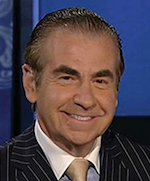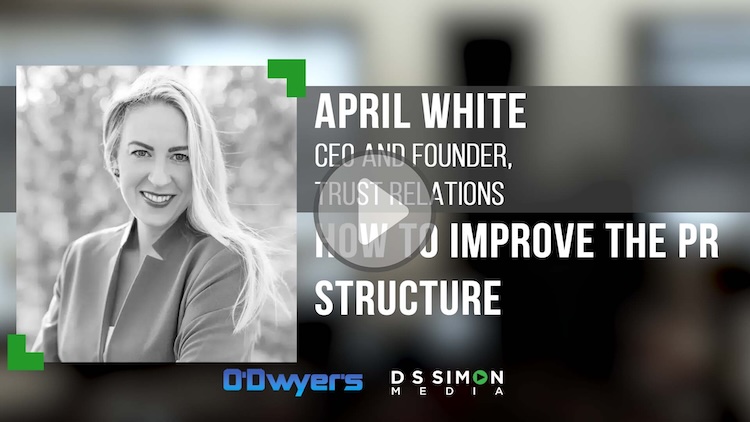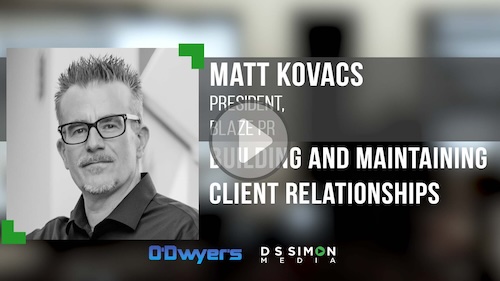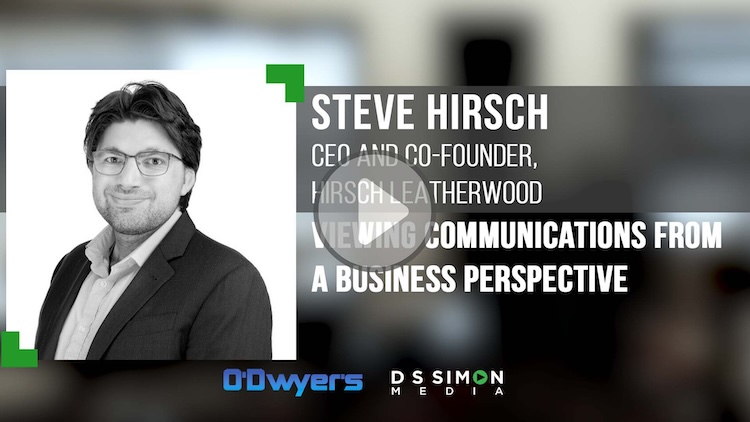 Fraser Seitel Fraser Seitel |
Let’s say you’re the chief communications officer—aka public relations director—of Atlanta, GA-headquartered Home Depot. Your CEO calls, apoplectic. “Delta, Coca-Cola and Major League Baseball, for God’s sakes, have just come out condemning the new Georgia voting law. We’ve got to say something. What should we say?”
So, what do you suggest Home Depot say?
Your answer—mine is at the bottom—should transcend the current knee-jerk consensus view abroad in both the land and the public relations community that “companies have a fundamental responsibility to speak out on social issues.”
To which I respectfully reply, “bull feathers.”
What your company says about a particular social issue—or even whether it chooses to get involved with said issue at all—depends on a number of factors, importantly including—forgive me— what’s best for its own self-interest, profitability and preservation.
Every time a corporation—or for that matter, any organization—is asked to take a stand on a social issue, be it voting legislation, gun control, Black Lives Matter or whatever, it must first answer these three key questions.
First, should we respond to social issues?
This is an easy one: the answer is “yes.”
Companies have every right to and should speak out on issues that concern them, particularly those related directly to their businesses; banks, for example, addressing financial policy, or pharmaceutical companies addressing drug pricing legislation.
What anti-business zealots like Elizabeth Warren and Bernie Sanders and Alexandra Ocasio-Cortez overlook is that corporations are composed of thousands of individuals, all members of diverse and concerned communities. So, the companies they work for should feel free—even obligated—publicly to discuss and debate the issues of the day.
In the old days, pioneering CEOs like Chase’s David Rockefeller, Citibank’s Walter Wriston, General Electric’s Reg Jones and Jack Welch, Dupont’s Irving Shapiro, Chrysler’s Lee Iacocca and several notable others regularly made their voices heard on policy and social issues. In more recent times, CEOs like Starbucks’ Howard Schultz, Apple’s Tim Cook, Salesforce’s Marc Benioff and Chase’s Jamie Dimon have continued that tradition.
So, there’s no question that it is, indeed, the province of companies to speak out. The harder question is …
What specific issues should we confront or avoid?
The answer to this question depends on a company’s primary objectives and most important publics.
As noted, if an issue has a direct bearing on a company’s business or the immediate environment in which it operates, it’s justified in choosing to confront it. But if by taking a stand, the organization risks alienating a key constituency on whom it depends for support (employees) or income (customers), then it should think twice before sticking its neck out.
Biting the hand that feeds you never makes sense.
That’s what Starbucks’ Schultz found out when he tried to solve the nation’s racial divide by mandating baristas to write “Race Together” on cups to spark discussions of racial inequality. The backlash to Starbucks’ embarrassing campaign was withering and instantaneous. Chick-fil-A suffered the same fate when CEO Dan Cathy publicly decried gay marriage. The outrage was so pervasive that the mayor of Boston threatened to outlaw the chicken sandwich!
Which brings us to the new Georgia voting law.
In point of fact, the new law, pushed and passed by Georgia Republicans, contains both good and bad parts. The “good” parts validly tighten both voter ID and absentee ballot criteria, which were eased in the Presidential election due to COVID-19. The “bad” parts unnecessarily expand power of a Republican-controlled State Election Board to intervene in county elections.
But in no way is the new law anything close to the “Jim Crow in the 21st century” label that President Biden erroneously pinned on it.
So why, then, would the CEO of Atlanta’s Delta Airlines reverse course on the voting law and issue a statement “to make it crystal clear that the final bill is unacceptable?” And why would the CEO of Atlanta’s Coca-Cola, a few minutes later, take to TV to say—in language neither particularly original nor creative—“Let me be crystal clear and unequivocal, this legislation is unacceptable?”
Even worse, why would MLB, after 12 consecutive years of declining revenues and attendance, decide suddenly to pull its All-Star Game from Atlanta, thus costing the city, the state, the taxpayers and most important, hundreds of local hard-working waiters, ticket takers, concession stand operators, taxi drivers and hotel employees, among many others, millions of dollars of lost revenue and earnings?
The answer lies in examining the third key question …
What major pressures do we face in confronting this issue?
In today’s hyper-partisan political climate, where companies are increasingly—and wrongly—urged to stick their beak into every conceivable area of social commentary, the pressure on them to “get involved” is unavoidable. Like it or not, they have to say something.
The Georgia voting law typifies today’s cycle of public relations pressure. Immediately after the controversial bill was passed, politicians, activists, talking heads, The New York Times and social media users all demanded that companies speak out in opposition.
The pressure was so intense that two days after Delta issued a statement supporting the new voting law bill, the company abruptly—and mortifyingly—changed direction after “#BoycottDelta” began to trend on social media. Then, when the Times prominently reported that dozens of Black business leaders were exhorting companies to oppose the Georgia law, Coke and MLB quickly joined the rush to the exits.
The downside, of course, in succumbing to such pressure is you dig yourself into a corner from which there’s no escape. Major League Baseball discovered this the hard way when its “principled stand” was openly criticized by one of the very people who urged it to take the stand in the first place. Georgia Democrat Stacey Abrams, a leading opponent of the bill, on the one hand, commended MLB players, owners and commissioner for speaking out and on the other, expressed “disappointment” that the money-making All-Star Game was being moved out of Atlanta. Abrams, you see, is a politician.
So, what then does a company say, in light of enormous pressure to speak out, if it’s not as—ahem—“committed” as Delta, Coke or MLB, but desires to respond credibly without alienating half its constituency by taking an extreme position?
Well, if you’re Home Depot, the world’s largest home improvement retailer with 400,000-plus employees, you take a step back, recognize there’s nothing you can say to please everyone, consider each of the unattractive alternatives and state:
“We believe that all elections should be accessible, fair and secure and support broad-based voter participation. We’ll continue to work to ensure our associates, both in Georgia and across the country, have the information and resources to vote.” Period.
Which is exactly the right thing to say.
***
Fraser P. Seitel has been a communications consultant, author and teacher for 40 years. He’s author of the Pearson text “The Practice of Public Relations,” now in its 14th edition, and co-author of “Rethinking Reputation” and “Idea Wise.” He may be reached directly at [email protected].










 Have a comment? Send it to
Have a comment? Send it to 
Apr. 26, 2021, by Joe Honick
Fraser, your essay here is an excellent and well grounded professional piece for such issues, EXCEPT when the history of most American major corporations and even colleges and universities did not see things as you do. The biggest and most respected and prestigious corporate names in America thought Hitler's marketplace was just dandy and did quite well in it, not all of whom stopped doing so even after Pearl Harbor. Fascinatingly and inexcusably one of the worst examples and a financier of Hitler along with numerous others from Wall Street was none other than Henry Ford who was given Hitler's highest decoration (I have a photo). Worse, a major journalistic powerhouse like Hearst made direct financial deals that stayed alive through the war.
Perhaps those corporations followed your first assertion about whether such public action would be good for the company. That collection of major and respected American corporations and even colleges and universities obviously took the money and have relied on truly competent public relations efforts to put it all behind them.
Bottom line: the big boys and girls will do as they wish and rely on well financed PR when the time comes.